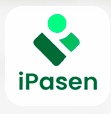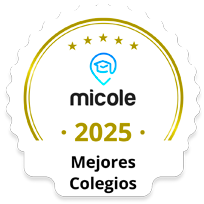Primary Third Cycle
Welcome to Primary Third Cycle at Platero Green School. The information is structured as follows:
Methodology
Primary Third Cycle methodology is structured in different flaps. Click on the one you want to read and it will be unfolded and click again to close it.
The main features of this cycle are:
Between 8 and 10 years old.
The students alter the distribution of space in the classroom to adapt to the activities taking place; switching from large groups or small groups to individual seating to favour autonomous work.
Each class establish rota-based tasks for each school term, meaning that all the students take responsibility for different jobs. The students are in charge of the classroom’s day-to-day organization and task distribution, with the support of their tutor teacher.
Students change their seating positions once a month, so that they can all get to know each other throughout the cycle.
One of the main objectives of this cycle is to promote active methodologies, enriching learning situations with the use of tools and resources such as, gamification, flipped classroom, project based learning and cooperative learning, to name a few.
Likewise, community service learning is specifically promoted in this cycle, where students identify situations in their immediate surroundings, committing to the issue through the development of solidarity project where they must display their knowledge, skills, attitudes and values. The main objective is the promotion of entrepreneurial culture amongst youngsters, encouraging collaborative attitudes and behaviours, coordination, resolution of conflicts and assuming difficulties and responsibilities.
The development of personal autonomy and self-confidence are key elements in this methodological structure. Students only access knowledge with a sense of security and motivation if they feel, and are given the tools to be, capable.
Although encouraging good reading habits begins at school, the home environment plays a key role in the acquisition and consolidation of this process.
Reading provides information, educates and entertains, creating a habit of thought, analysis, effort, concentration… A healthy reading habit helps students to learn for themselves in any context, throughout their lifetime.
Reading allows us to improve and evolve to higher levels of understanding, to the point where we can make inferences.
Reading is exciting, fun and surprising, it is a pleasure. Therefore, our main goal is for our students to view it in this way. It will only become a pleasure is they learn to enjoy it.
To nourish our reading we have a school library with large numbers of titles that are catalogued in the Seneca BiblioWerb portal, through which we can learn to use the municipal library system, as they both organize lending in the same way. We also have a classroom library, which is managed by the students themselves; and, for those moments of leisure in the playground, we have the “Bibliopatio” (playground library).
The main objective of bilingualism in the Third Cycle of Primary is the immersion in the English language and is present in Natural Sciences, Social Sciences and Physical Education. To this end, and without prejudice to the respective subject objectives, we propose parallelly, a progressive contact and development of our students’ communicative skills in English. All four linguistic skills are developed: listening, speaking, reading and writing. New elements are always introduced orally, with visual aids to support understanding. Reading and writing is introduced gradually in our cycle: initially, to support and consolidate language learning; and later, as an autonomous skill.
With the development of emotional competence, students learn to recognise and manage their emotions, allowing personal growth and, as a result increase their happiness. We believe that working on emotional education with our students is crucial, as it contributes to whole-person development.
Ultimately, in Third Cycle, bearing in mind the age of our pupils, we are committed to emotional education in our classrooms as it brings us:
- It helps to promote whole-person development in our students.
- It fosters their self-confidence and helps them to understand and manage their emotions, allowing them to know themselves and to improve their sense of control with regards to what is happening to them.
- It improves their manner, attitude and behaviour and how they relate to others, enhancing attitudes of respect and tolerance and their capacity to empathise with others.
- It improves motivation towards learning and work ethic, improving their performance and personal habits.
- It develops their ability to deal with frustration and self-control.
To accompany our students, we follow an emotional education programme in which the school’s programme for values education converges with the theories and practises of Mar Romera and Alberto Ortega, who have both nourished us through various learning and development courses.
Specifically in Third Cycle, we implement the “Programa INNICIA”, an educational project developed by Andalucia Emprende, Fundación Pública Andaluza and the Asociación Andaluza de Centros de Enseñanza de Economñia Social (ACES), aimed at building an entrepreneurial culture amongst students. This educational project stives to enhance our youngsters’ personal and professional skills through training in entrepreneurship.
Environmental Education permeates everything we do at our school, we don´t work on it in any particular way, we live it in every possible way. Respect for the environment is experimented and learnt by respecting our immediate surroundings.
Recycling, caring for our surroundings, fostering healthy habits, working in our allotment, and the experiences gained from field trips and camping, the correct management of energy, water and valuable resources such as paper… all these things configure our experiences, building a shared conscience which we hope reaches our community, and subsequently our planet. Educating people to be conscious and feel responsible for our planet is the best way to save it.
Third Cycle Classrooms have:
- Velleda Whiteboard.
- PC.
- Projector.
- Speakers.
- Internet access.
In addition, students can work in both of the IT classrooms, make use of the portable classroom (20 laptops) in their own class and develop projects through the mobile classroom, video cameras and other digital resources.
Online content is accessed to work on cross-curricular aspects of proposed activities, as well as a means to investigate, gain in-depth knowledge and provide feedback.
The use of ICTE in the classroom improves inclusive learning, attending to diversity in a simple way, and has rapidly become one of the most important strategies in Universal Design for Learning.
Our premise is that learning isn’t only constructed in the classroom, but also outside school, in everyday life and through the various homework tasks and activities.
Nevertheless, we are aware that homework should mainly focus on the development of competences, that is, it should put their knowledge into action and be useful for real life not just for school.
To this end, just like with everything that has to do with education, it is essential that teachers, students and families work together very closely.
In line with our thoughts expressed on tasks and activities, and in agreement with the entire school community whose contribution supports our growth, our proposal for these school year presents the following characteristics:
Suggested tasks:
- Based on experiences, investigations and meaningful experiments.
- They are interdisciplinary whenever possible.
- They will be completed mainly in school time.
- Some types of investigation or actions at home can be requested to contribute to classwork.
Suggested homework activities:
- They will be employed for subjects that require extra reinforcement to learn processes and content.
- Study time will be set in accordance with students’ age and maturity as they progress through the school grades.
Finally, we will consider the importance of the following:
- Personal study: students will receive guidance on how to programme the study time they need.
- It is essential to allow sufficient time for creative writing and pleasure reading. Spanish language teachers will provide strategies to promote both activities through the implementation of a project called “Círculos Lectores” in which reading levels are increased thanks to student dramatization. They have the opportunity to tell the story first-hand and become one of its characters.
- Always, and above all else, the individual treatment of each student will be the focus, attending to their personal needs in a professional manner.
In primary, they will only be employed in the key subject areas (Spanish language, Maths and English). Students will be asked to do the equivalent of 1 worksheet per week, covering the main content seen. In third cycle, for science, they can be asked to carry out one investigation/project per school term.
Our assessment model is centred on the different implementation contexts, which provide us with the degree of achievement of the objectives set out in each of the subject areas, in which we always strive to guarantee that learning is competence-based.
Each subject has several contexts that provide teachers with information regarding what the students know, what they can do with what they know and their attitude towards what they know. Furthermore, these contexts are backed up by activities, tasks and projects, in which students prove their mastery of the learning acquired, thus developing their competence-based abilities and skills.
Each subject matter will be graded with a numerical score using assessment rubrics, based on the values extracted from the implementation contexts selected in each of the subject areas.
The educational community, through the School’s Annual Plan and website, is informed of the different contexts considered in the final assessment of each subject matter.
Learning to live with others entails management and organization within schools. Assemblies equip students with strategies that help them to think; thought based on self-knowledge and individual and shared commitment. They also contribute to individual growth and create harmonious environments, contributing to both self-confidence and individual identity, as well as developing the ability to resolve conflicts and issues that arise in everyday life. Assemblies also improve decision making on day-today problems, helping students’ achieve personal balance and shared and global harmony.
Being, as we are, an educational cooperative, students also organize themselves and self-manage through the class assembly. Class assemblies occupy one session per week (oral expression).
One of the main principals is the distribution of tasks and responsibilities, which are democratically assigned in each class.
Likewise, in the assembly everybody has an assigned role:
- The class Secretary states the topics delt with in the previous assembly and takes the notes of the current one.
- The Chair explains the communication rules before starting and gives the floor to the speakers.
- All members of the class can put forward ideas, which are noted in the minutes of the meeting. When dealing with conflicts between two or more people or problematic situations, solutions are sought out and agreements are made, and will be revised in subsequent assemblies.
- Additionally, to encourage participation amongst students, and to foster a sense of belonging to the educational community, we invite them to put forward their “suggestions” on any topic they like. They can suggest improvements to issues relating to both their classroom or any other aspect of the school in general, such as the playground, canteen or specific classrooms.
- One of the most interesting and enjoyable moments of the assembly is that of the “compliment”, where anybody can freely compliment someone or the whole group on something they believe is significant.
- Previously, during the week, “cariñogramas” (affection notes) are collected in a mailbox. In these short notes they can address a schoolmate to give thanks, apologise, show their affection, congratulate, etc.
School outings are organized and sequenced based upon the projects that are carried out in the cycle. All outings are related to topics that allude to syllabus content.
There are short outings, in the morning, and long outings, lasting all day. Before each outing a circular letter is sent so that the family can authorise the student and draft any necessary comments. The monetary amount of the outing will be stated on referred circular and will be collected by the tutor at the beginning and end of the school day.
A meeting with the families is held prior to the end-of-school camping event, where we explain the nature of the activity and resolve any individual queries. It is the most popular outing and something Platero Green School is renowned for, where the students share several days with their teachers, creating bonds and sharing many memorable moments.
The family is a key pilar of education during infancy. Family-school collaboration always enriches the process and provides ideas and energy to move forward.
- Learning platform: through our platform, families are not only informed of the students learning process, but also of the school’s organizational processes. Furthermore, it offers the possibility to be in contact with teachers.
- Classroom: through this online suit we share curricular resources with families that can facilitate home learning and enrich school experiences. It also allows us to stay close to those pupils who, for whatever reason, must stay at home temporarily.
- Social networks: through Facebook, Youtube and Instagram we provide families with a graphic view of the different activities that take place in school.
- PA: the parents association in our school is very committed and takes an active part in our internal organization.
- Family delegates: at the beginning of the school year, each class democratically elects a family who will act as a link with the class tutor, thus establishing an important channel for first-hand information and participation. This is important role enhances communication, the organization of activities and proposals amongst families.
- Parent meetings: at the beginning of the school year, the families and the assigned class tutor attend a group meeting. In this initial contact all the new school year details are presented, and any queries are answered. Additionally, throughout the year, individualized meetings (tutorials) are held upon request of the families or at the discretion of the tutor.
Teachers of this Cycle
Introduction
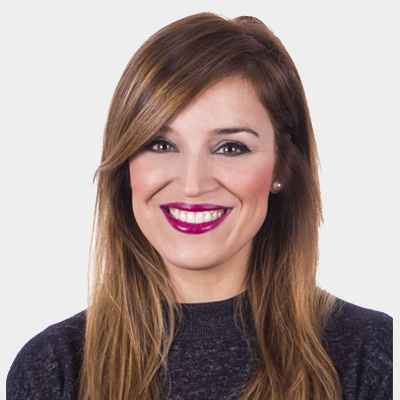
Sara Trujillo Sánchez (Coordinator)

Manuel Ramos Soria
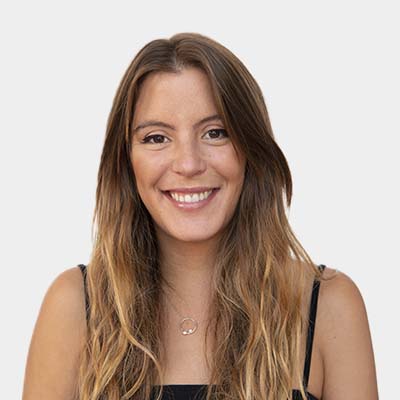
Elena Sánchez Nadales
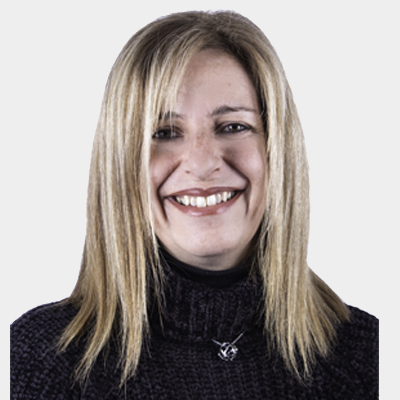
Olga Martínez Cuenca
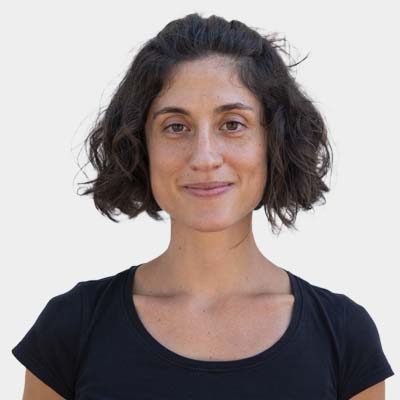
Helena Muñoz Blanco

Sebastián Vílchez Milla

Miguel Ángel Hinojosa Granados
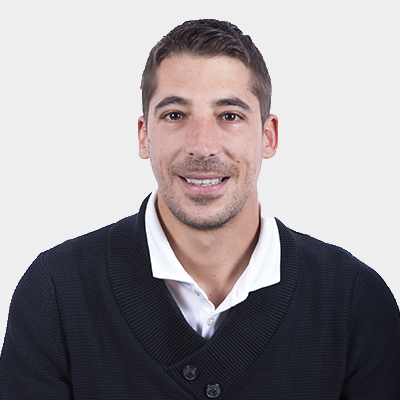
Rafael Clavero Sánchez
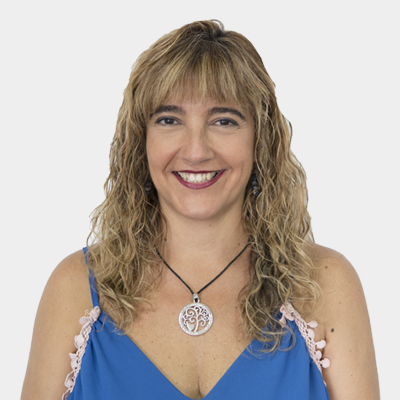
Inmaculada Díaz Díaz
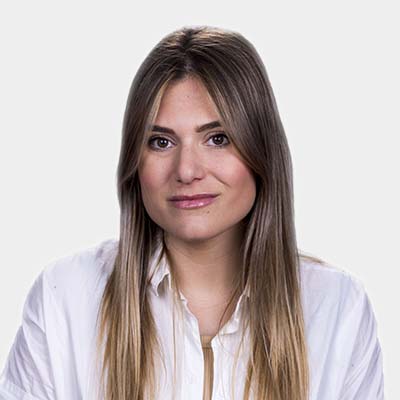
Alba Solano Jiménez

Alfonso De los Reyes Méndez
School Trips
| Course | Date | Activity | |
|---|---|---|---|
| 5º y 6º | Octubre 2024 | Cross de orientación (Morlaco) | |
| 5º y 6º | Diciembre 2024 | Prison Insland | |
| 5º y 6º | Abril 2025 | Cueva de Ardales | |
| 5º y 6º | Mayo/Junio 2025 | Inacua | |
| 5º y 6º | Junio 2025 | Playa | |
| 5º y 6º | Junio 2025 | Acampada |
Textbooks Course 2025/2026
5th Primary year
| Subjects | Books Title | Publishing House |
|---|---|---|
| Conocimiento del medio | Conocimiento del Medio. Operación mundo | Anaya |
| Educación Física | Educación Física 5 | Anaya |
| Lengua | Lengua 5. Rutas | Anaya |
| Matemáticas | Matemáticas. Rutas | Anaya |
| Música | Música. Operación Mundo | Anaya |
| Plástica | Operación mundo | Anaya |
| Religión Católica | Religión Católica 5 | Anaya |
| Francés | Elastique Essentiel 1. Livre de l´éléve avec version numérique | Oxford |
| Inglés | Open Up 5 Class Book Pack+ALK with Class Book ebook | Oxford |
6th Primary year
| Subjects | Books Title | Publishing House |
|---|---|---|
| Conocimiento del medio | Conocimiento del Medio. Operación mundo | Anaya |
| Educación Física | Educación Física 6 | Anaya |
| Lengua | Lengua 6. Rutas | Anaya |
| Matemáticas | Matemáticas. Rutas | Anaya |
| Música | Música. Operación Mundo | Anaya |
| Plástica | Operación mundo | Anaya |
| Religión Católica | Religión Católica 6 | Anaya |
| Francés | Elastique Essentiel 2. Livre de l´éléve avec version numérique | Oxford |
| Inglés | Open Up 6 Class Book Pack+ALK with Class Book ebook | Oxford |

